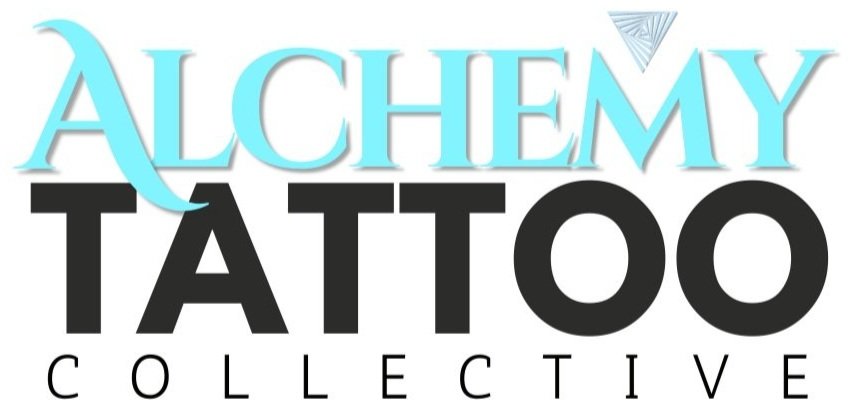The Real Cost of Tattoos in St. Louis: Pricing Breakdown + What Affects It
If you're looking for tattoo prices in St. Louis, here's a breakdown of what to expect when booking with our shop.
So, how much does a tattoo cost in St. Louis?
The cost of a tattoo in St. Louis depends on several factors including style, artist experience, and whether you're going for something minimalist or a full sleeve. Most tattoos at Alchemy start at $100. Pricing depends on size, detail, placement, and your artist’s hourly rate. Small tattoos usually range from $100–$300.
Half sleeves typically fall between $800–$3,500.
Full sleeves can range from $1,500 to $5,000 or more, depending on complexity, color, and the number of sessions.
Full back pieces often start at $2,000 and can exceed $6,000, especially for intricate, full-color designs requiring multiple sessions.
These estimates align with industry averages, where full sleeves and back pieces remain at the top end of the pricing spectrum, with costs ranging from $2,000 to $7,000 or more.
One comparison: small minimalist vs. large detailed tattoo
Left image is a stock photo for comparison. Right image is a healed large-scale tattoo by Chelsea Holloway.
What affects the price of a tattoo?
Size and placement
Larger areas and hard-to-reach spots take more time and care. Delicate areas may also require breaks or slower pacing.Design complexity
A solid black shape takes less time than a full-color illustrative piece. Details like fine lines, dotwork, or realism raise the price due to the technical skill and time involved. Tattoos that include realistic portraits, layered textures, or detailed shading will usually take longer than minimalist or traditional styles. If you’re interested in a full sleeve or back piece, expect it to be completed over multiple sessions, billed by the hour.Color vs. Black and Gray: Color tattoos generally take longer due to layering and blending, thus costing more than black and gray designs.
Body Placement: Areas that are more sensitive or difficult to tattoo, such as ribs or feet, may incur higher costs due to increased time and skill required.
Artist experience
More experienced or in-demand artists often have higher hourly or session rates. Apprentices or newer artists may offer lower-cost options under supervision.Color vs. black & grey
Full-color designs often require more layers, which means more time. Black and grey styles tend to be quicker but still depend on shading complexity.Custom vs. flash
Custom designs take longer to prepare and often cost more. If you’re on a budget, many of our artists offer flash designs at set prices.
What about tipping?
Tipping isn’t required, but it’s always appreciated—usually 15–25% of the tattoo cost, similar to hair or beauty services.
What’s included in the price?
Your price includes sterile, single-use supplies, artist setup and cleanup time, aftercare instructions, and the prep/design process. Some artists also offer free touch-ups within a set window if your tattoo heals unevenly.
Can I get a quote before booking?
Yes. For custom work, you’ll usually need a consultation. At our St. Louis tattoo shop, we offer free consultations to give you a realistic price range before booking.We also offer walk-in tattoos and pre-priced flash pieces that don’t require consults. You can check our booking page or artist portfolios for more info. Keep in mind that exact quotes can be hard to give without a design finalized. We always recommend starting with a consultation, especially for larger or custom work. This gives your artist time to understand your vision and provide a more accurate estimate.
Apprentice tattoo in progress featuring Severin Watson, former tattoo apprentice at Alchemy, now a licensed artist.
Budgeting tips
Be upfront with your artist about your budget. The artist can plan their design with it in mind.
Flash is often more affordable than custom work.
Ask about apprentice work if you’re open to being tattooed by someone in training.
Plan for Multiple Sessions: Larger tattoos, like full sleeves or back pieces, often require multiple sessions. Spreading the work over time can make budgeting more manageable.
Consider Aftercare Costs: Proper aftercare is crucial for healing and maintaining your tattoo. Budget for quality aftercare products and potential touch-up sessions.
Final thoughts
A tattoo is a lifetime investment. Pricing reflects not only the time it takes to complete, but the skill, hygiene, and care behind it. If you’re ready to start your next piece, we’d love to help.




